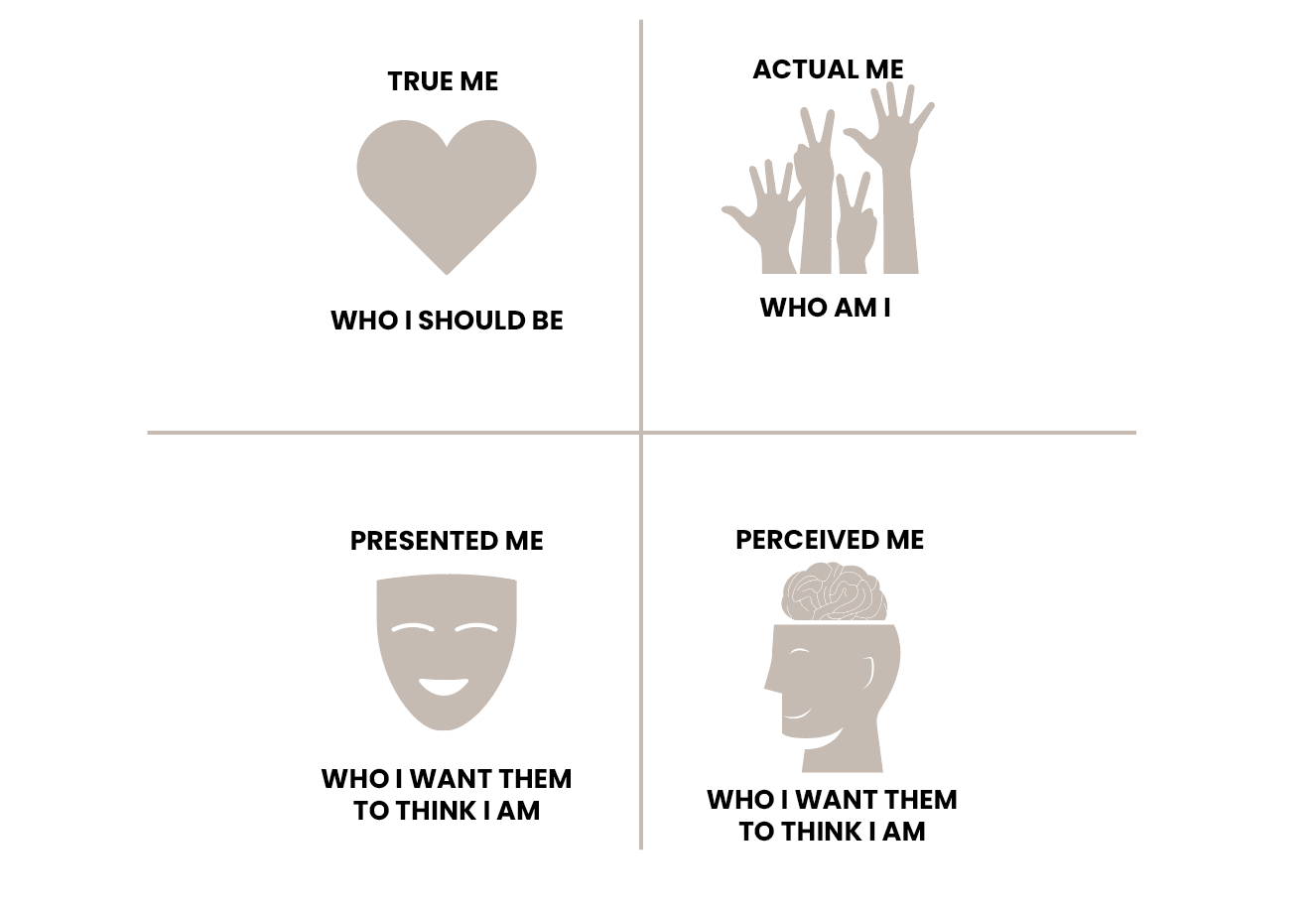I was living a double! That sounds dramatic, but that’s the best way to describe my life from 10 years ago. It’s 2011; I had just repatriated to Colombo from Melbourne. I was still buzzing from the high of living a hedonistic life, having experienced more pleasures than I care to remember. I was blissfully ignorant of all the detriments those experiences would eventually have on me. I was 31 single and back in the hospitality industry with no responsibilities, armed with overconfidence, a carefree attitude focused on achieving & enjoying.
At the same time, I return to my old church. I always felt welcomed there. The people were genuine & warm. However something was different this time around. The issue was not with them, it was me. I had changed! The lifestyle and values I lived by were very different to my old church friends. The things that I had in common with them were reduced to dogma. While I was free to share my struggles with them, I was not comfortable to share my pleasures. The same discrepancy was happening in my other social networks. While I had common interests with my party friends, I couldn’t discuss my existential concerns with them. My values and beliefs were not reflecting in my behaviors. Who I was at church was not the same person I was when I was socializing!
Eventually this duality would create tension that I couldn’t ignore. I felt I wasn’t being authentic in my relationships not just with my church friends but also with my work and school friends. I didn’t enjoy the sombre feeling that I was being two faced. I was living in ambiguity and lacking integrity!
The Segregated Self
Fast Forward a few years i would come across a concept that would not only define this predicament, but also help navigate me out of the abyss. I attended a personal development training program called THE WORLD NEEDS A FATHER, which would change me forever! (I’m now a trainer for this same movement) Amongst the many life altering lessons I gained one was called the Segregated Self. It’s a concept put together by the founder of the movement, Cassie Carstens from South Africa. This simple framework helps anyone to introspect one’s personal life. It helps locate the hidden internal conflicts. It highlighted the discrepancies I thought I was managing so well, and revealed the detriments that would follow if I don’t change. I was first disturbed at this realization, then relieved to know there was a solution! Here’s the basics;

1. True me: The easiest way to define this first segment is; it’s your view of the perfect person. It’s that imaginary profile we measure ourselves against every time we say “shouldn’t do that” or “i should have said that”. This is who you aspire to be. This profile is unintentionally created by your own moral values, religious or secular beliefs, your worldview and childhood experiences. The Psychologist Carl Rogers calls this the ‘ideal self’. Steven Covey, the leadership guru, calls this your ‘inner voice’. As a Christian we believe is our ‘Spirit’, it’s what God tells us who we should be. Call it what you will, we all have it!
2. Actual Me: This is who I am in my natural state. When I’m in my comfort zone, when no critical thinking is required. It’s when I’m cruising through my usual daily activities without hesitation. This part of me is seen by others in how I handle my normal interactions. It’s when I’m not concerned about the audience.
3. Presented Me: This is when I only show one side of me. It depends on the audience. Usually, it’s when I show my best side. It’s driven by my need to make a good impression. It’s when I adjust myself to the expectations of others. It’s how we behave a little differently when we go to church, to work, to school, or to a party. It’s the decisions I make that are driven by that subtle thought ‘what would people think’. To understand the ‘Presented me’ at work all we need to do is look at the virtual experience of ‘posting’ on social media. Whether it be Facebook, Tiktok or the Gram we only post what will garner the most praise. We choose to display what would be deemed most socially admirable. We are all guilty of this.
4. Perceived Me: this is simply ‘what others think of us!’ It’s how people read us from all our actions & statements. Whether it be our passionate discussion at office breaks or clever jokes at parties; it’s the impression we make on others. The ‘scrolling experience’ on social media is a prime example of how the ‘Perceived me’ works. When we scroll our media feed of others we can’t help but have an opinion of what we see. From the woke passionate posts about diversity, pictures of boutique dinners or trips to the beach. These silent judgments we make about their choices remain as labels and stick as part of our perception of them. The same is true for the inverse! People make judgments about us online or in-person and there’s nothing we can do about that. Our concern about this is a real part of our identity.
The Gaps
These 4 segments are vibrant and alive within our daily lives. They each represent a powerful aspect of our identity. The question is how well do they align. When they are not in sync we experience distress. When there’s a difference amongst these aspects, we begin to have internal conflict. They form a gap between these 4 quadrants.
“So what’s the big deal’ about these gaps?” You may ask. “How do I know if I even have these ‘gaps’?” Most of us like to think everything is ok. ‘If it ain’t broken don’t fix it’ is a mantra we unintentionally live by. To think otherwise presents 2 problems: 1. Something is wrong with me! 2. Now I have put time and energy to fix it! None of us enjoy this process of personal renovation. Then why do it? For starters, if something is small enough to be nipped in the bud, less energy is required to make that change. But if time is given for these seeds to grow into strong roots, far more damage will be done. Then more energy is required to rectify the problem. These gaps are acorns, given the time they will grow into mighty oaks!
The gap in essence reveals a cause for the lack of inner peace. They arise when we begin to have discrepancies in what we believe and how we behave. If you believe one thing, but behave in ways that are different from your belief you have a gap!
These gaps are some of the reasons for our struggling relationships. We are not in a place of integrity, as you are divided unto yourself. Our inner being is working against each other rather than in unison, we are not living a wholistic life. This is what was happened to me. It was an unpleasant feeling that I couldn’t have peace just being me, I felt I was not comfortable in my own skin. Psychologist Carl Rogers calls this ‘incongruence’. He says a person who is in a state of incongruence cannot experience a fulfilled life.
The easiest way to introspect this is to check the motivation of our goals in our life. They will test the quality of our life. The next is to take a pulse of our relationships! How healthy our the current relationships in our life? Here’s a few red flags when looking out for ‘gaps’;
- Believing you are incapable of being loved
- Unhappy with the chosen path in life
- Not having a life purpose
- Unable to be enjoy relationships (platonic & romantic)
- To believe without achievements (tangible or intangible) one cannot enjoy life
- Fear of sharing personal desires, passions, struggles with close relationships
- Trying to fit into social profiles unnatural to your self
- Too many things in your life are defined by the standards of others
To journey inwards and notice our insecurities takes courage. In fact, it’s one of the bravest things anyone can do. Being vulnerable with ourselves is not easy and certainly uncommon. The usual form is to blame the things around us, and there’s usually a catalog of issues to choose from. Even if the catalyst for the problem lies elsewhere, the solution for the despair in our lives lies in inwards! To look inwards and take stock, that’s a powerful start to living with integrity and purpose.
~ Dimitri Pieries
Concluded in Part 2
If you found this topic interesting and you would like personal coaching
Contact us
Phone: +94-76433-6376
Email: [email protected]
Resources:

